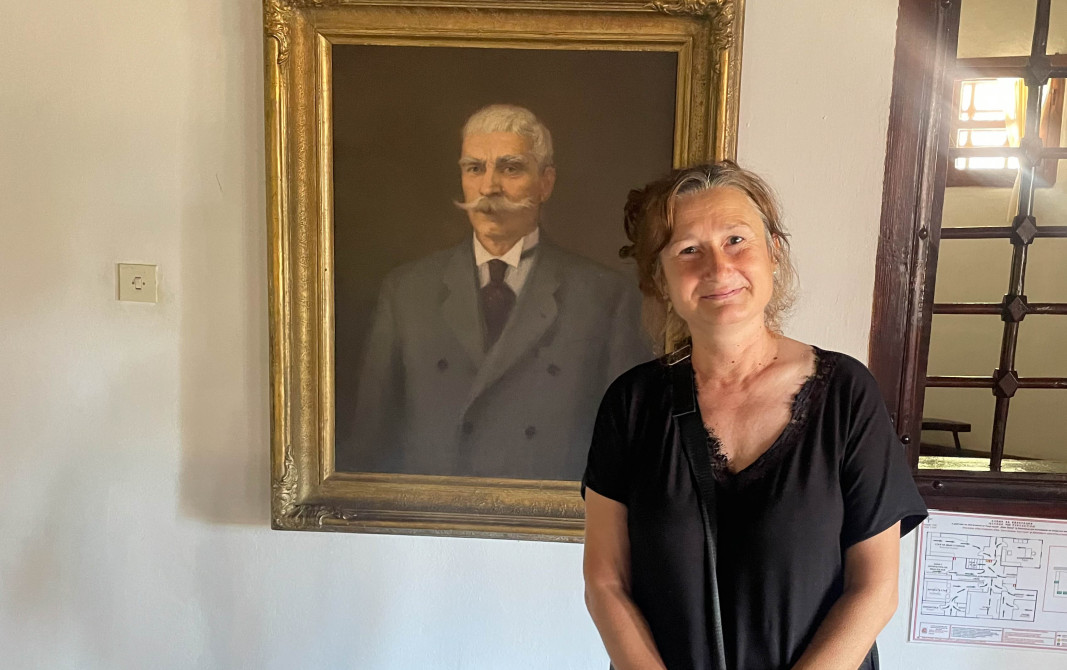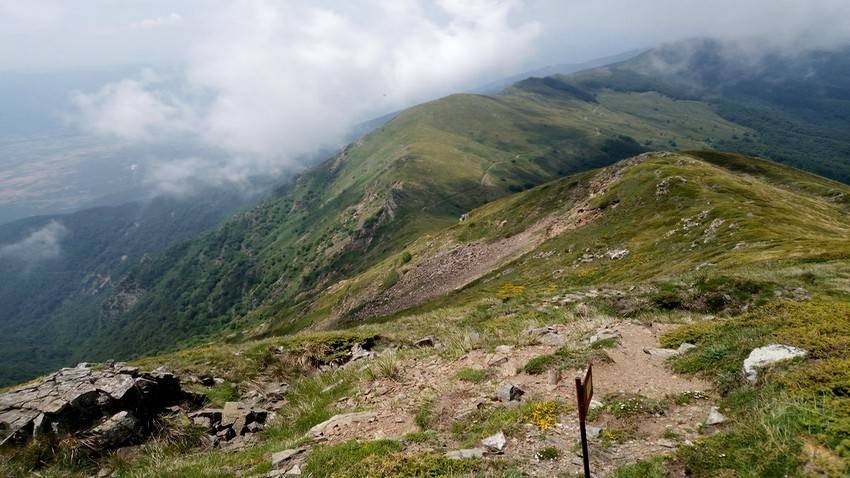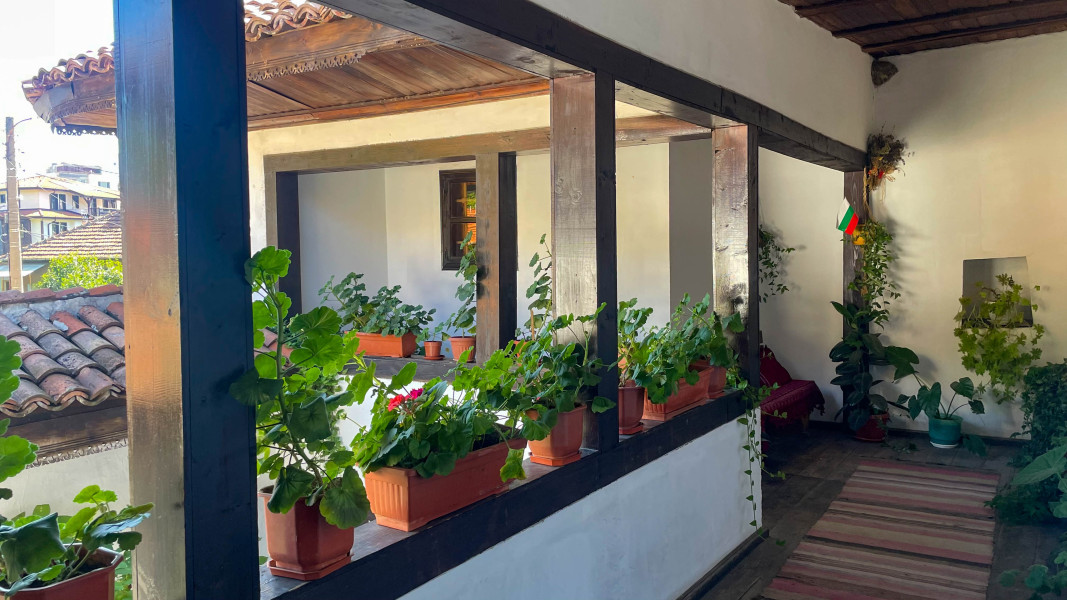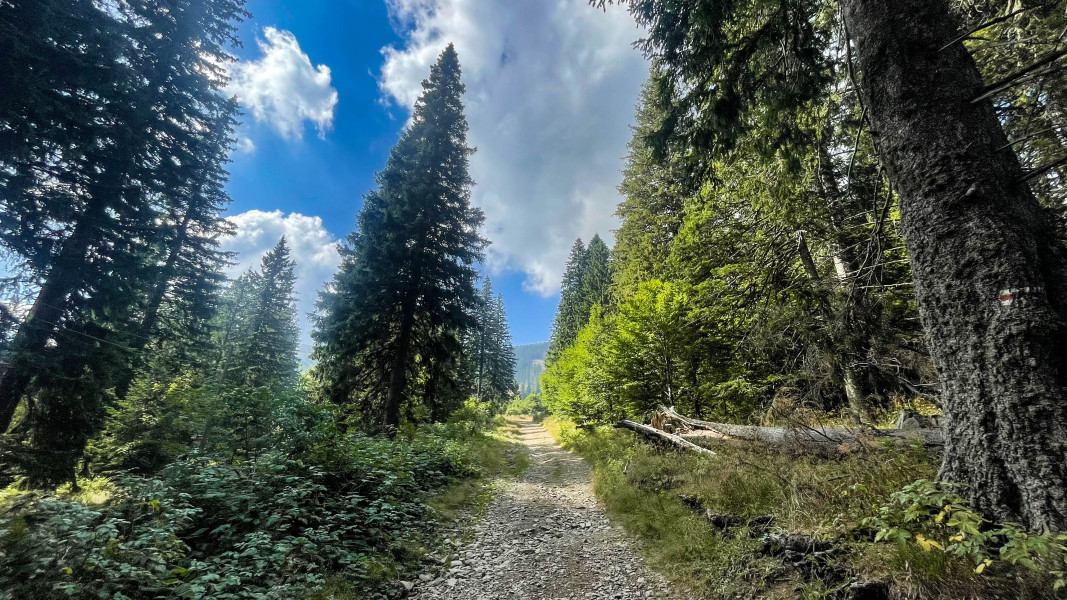 7
7
Berkovitsa, a small and quiet town, immersed in greenery at the foot of the majestic peak Kom (2016 m), still keeps the memory of the most emblematic Bulgarian poet and writer Ivan Vazov. The Patriarch of Bulgarian literature lived in this town from March 1879 to 18 September 1880, and later wrote that it was one of the most fruitful periods of his life. In Berkovitsa he held a high administrative post as chairman of the district court.
But before that he had worked for some time in Ruschuk (today's Ruse on the Danube - ed.) as a clerk. There he was diagnosed with a lung ailment and doctors recommended that he should change the humid climate of the Danube for clean mountain air.
Thus, the 29-year-old Vazov, already a famous poet, chose to resettle at the foot of the Balkan. At that time Berkovitsa was a craftsmen's town with its narrow and long cobblestone streets and two churches. The young poet settled in the so-called Ipekliyska House, where he used to live only in a room on the second floor - the largest room of the house with unique carvings on the ceilings and closets. Today this house is a museum of Vazov.
We enter through the small wooden door and into the coolness of a cobbled courtyard where geraniums and boxwood grow. At the entrance we are greeted by the curator of the museum - Kalinka Petrova, who with undisguised emotion tells us about Vazov's life in the small town in the Balkans and even passionately recites his poems:

"In the cosy atmosphere of this house, under his pen, some of his finest poems were born. I'll start with my favourite poem 'Raspberries' :
Stay, you maiden, blooming charm -
Let me caprure your blue eyes
With this basket on your arm
Full of crimson raspberries.
Picked them at the break of dawn
With your gentle finger tips
In the darkest woods, alone,
Song upon your rosy lips.
Inspired by raspberry pickers returning home with baskets full of red berries amidst ear-pleasing merry laughter and banter.Overwhelmed by their beauty and industriousness, Vazov wrote this poem, which stands as an anthem of Berkovitsa and is passed down from generation to generation. Here he created some of his most famous works, including the poem "On top of Mt. Kom".

Hence the eye wanders unhindered and free.
The universe obediently stretches out to me.
The soul breathes proudly. From these heights
the mind aspires to deeds great and bright..." – рецитира Калинка.
The young poet is fascinated by Berkovitsa, by the nature of the Balkan, by the contacts with the local people. Inevitably, love finds him. "The 17 months in Berkovitsa made him physically stronger, he put on weight. The walks in the mountains, the fresh air, the water worked wonders for him and brought the colour back to his cheeks! Besides, here he met a sweetheart - 19-year-old beauty Zikhra. Not a single photo of her survived, but she was a black-haired and black-eyed beauty. Their friendship quickly blossomed into passionate love. Later, when he was living in Plovdiv, he dedicated the poem "Zikhra" to her - says Kalinka Petrova.

Ivan Vazov is also considered the founder of tourism in Berkovitsa. At the foot of Mount Kom, not far from the new hut "Kom", there is the so-called "Vazov stone" - a stone on which the poet allegedly sat and contemplated the beauties of the Berkovitsa Balkan.

On that day the Saviour hosted the traditional Passover meal for the Jewish people at the home of a Jerusalemite. Before the meal, as a sign of respect, He washed the apostles' feet and said, "I did not come to be served, but to serve". At the table,..
The attack in the "St. Nedelya" cathedral on April 16, 1925 is the deadliest terrorist act in the history of Bulgaria. It took place on Maundy Thursday and in terms of its brutality and premeditation, it has no analogue. During Holy..
On the day of Holy Wednesday, one of the last events before the saving sufferings for humanity of the Son of God is remembered. In her sincere repentance, a sinner managed to enter the house where Christ was staying and, wishing to testify to her..

+359 2 9336 661
